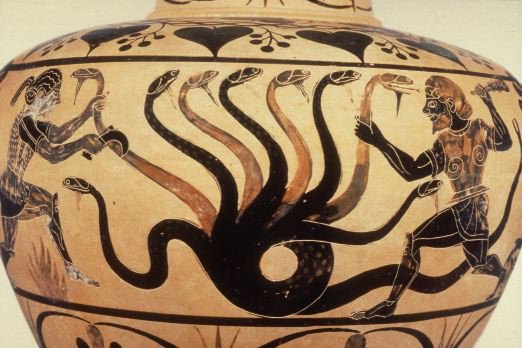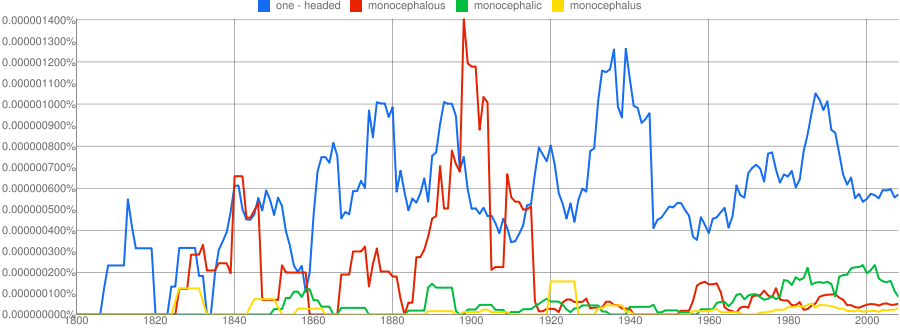Reading this article by the fantastic Douglas Adams I came across this interesting quote:
‘[I]nteractivity’ is one of those neologisms that Mr Humphrys likes to dangle between a pair of verbal tweezers, but the reason we suddenly need such a word is that during this century we have for the first time been dominated by non-interactive forms of entertainment: cinema, radio, recorded music and television... We didn’t need a special word for interactivity in the same way that we don’t (yet) need a special word for people with only one head.
This got me thinking — not just about what that word might be (unikef? monocap?), but also about how new words are constructed.
My two first thoughts above were that the word would be constructed from either Greek or Latin roots (mono and uni, respectively), and I assume that most newly constructed words would follow a similar structure. That is - they would take previously prescribed pieces of a language (classical or otherwise) and shape those pieces to fit the needs of the new word.
But which language would be more likely? Greek? Or Latin? Or, since the concept of having to describe someone with only one head antedates both of these languages by so much, would it be inappropriate for a new word to have a classical root?
I would appreciate it if any readers who do have multiple heads could let us know authoritatively how you refer to us one-headed folks.


